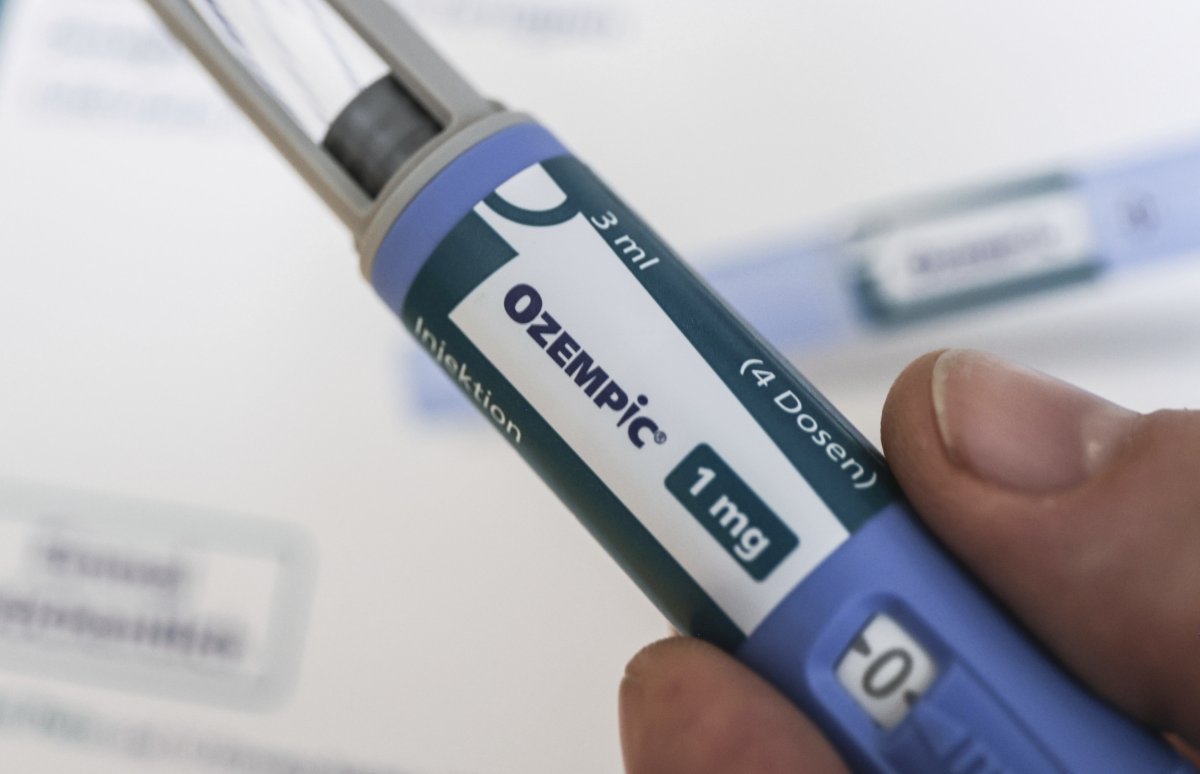
The weight-loss and diabetes drug Ozempic, a semaglutide, can lead to people drinking less alcohol, a clinical trial has found.
Results showing that people craved and drank less alcohol were published in the journal JAMA Psychiatry on Wednesday.
Why It Matters
This clinical trial was fairly small, but if the results are repeated in larger ones, it could mean that Ozempic-like drugs could be used to help people struggling with alcohol misuse.
What To Know
The study assessed 48 people who showed signs of moderate alcohol-use disorder, a condition which refers to those who struggle to control drinking, despite its negative consequences.
In the trial, people who were put on low doses of semaglutide for nine weeks saw more significant reductions in how much they drank and cravings for a drink than people who were given a placebo.
“Semaglutide led to reductions in some, but not all, measures of weekly consumption, significantly reduced weekly alcohol craving relative to placebo, and led to greater relative reductions in cigarettes per day in a subgroup of participants with current cigarette use,” the study said in its findings.
What People Are Saying
Lead author of the study Dr. Christian Hendershot said: “We hoped to see a reduction in drinking and craving. What I didn’t expect was the magnitude of the effects looks fairly good … compared to other alcohol-use disorder medications.”
Cambridge University’s Stephen Burgess told Politico that the study was small but “exciting.”
“This study serves as an initial indication that semaglutide and similar weight-loss drugs may be beneficial for treating alcohol use disorder, at least in the short term,” he said.

AP
What Happens Next
Researchers concluded that the results “justify” larger clinical trials of these types of medications for alcohol-use disorder. It remains to be seen whether bigger trials will take place but, if they do, and they show the same decline in drinking, it could mean that the medical community has a new resource with which to treat alcohol-use disorder.
Ozempic Side Effects
It comes as recent studies have indicated a potential link between semaglutide, the active ingredient in Ozempic, and a rare eye condition known as non-arteritic anterior ischemic optic neuropathy (NAION).
NAION occurs when blood flow to the optic nerve is blocked, leading to sudden, painless vision loss in one eye.
Symptoms of NAION can include blurred vision, peripheral vision loss, dark spots in vision, and changes in color perception. Though the exact mechanism is not fully understood, researchers hypothesize that rapid blood sugar reduction caused by a semaglutide may damage blood vessels in the eyes, contributing to this condition.
A spokesperson for Danish pharma company Novo Nordisk, which developed Ozempic, previously told Newsweek: “NAION is a very rare eye disease, and it is not an adverse drug reaction for the marketed formulations of semaglutide (Ozempic, Rybelsus and Wegovy) as per the approved labels.
“After a thorough evaluation of studies from the University of Southern Denmark and Novo Nordisk’s internal safety assessment, Novo Nordisk is of the opinion that the benefit-risk profile of semaglutide remains unchanged (…)
“Patient safety is a top priority for Novo Nordisk, and we take all reports about adverse events from use of our medicines very seriously. This also relates to eye conditions, which are well-known comorbidities [the simultaneous presence of two or more diseases or medical conditions in a patient] for people living with diabetes.
“Any decision to start treatment with prescription-only medicines should be made in consultation with a healthcare professional who should do a benefit-risk evaluation for the patient in question, weighing up the benefits of treatment with the potential risks.”
Newsweek has broken down what we know about Ozempic side effects here.





